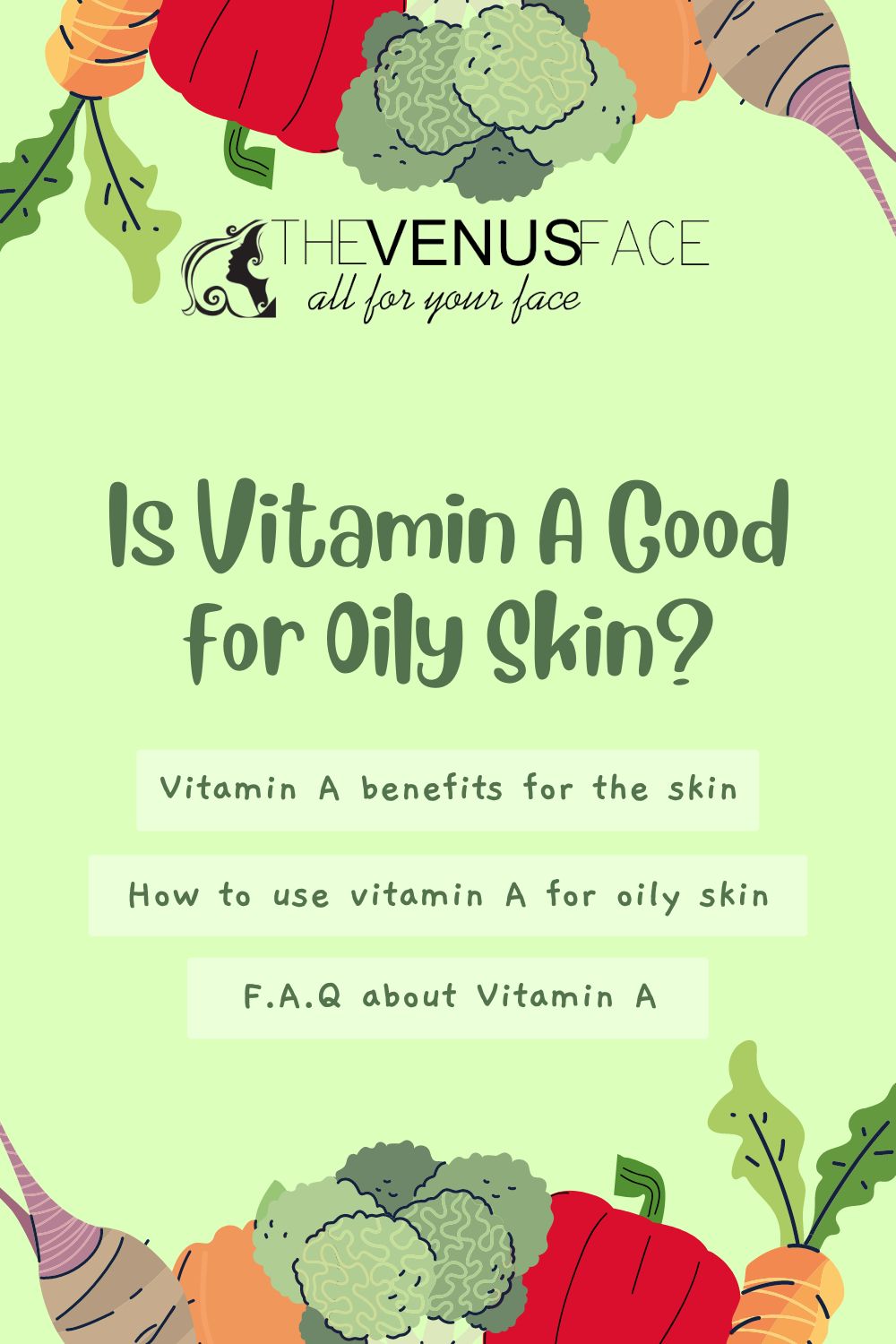Vitamin A is an essential nutrient that supports a wide range of bodily functions. It helps to maintain healthy vision, boost the immune system, and promote cell growth. Vitamin A also plays a role in reproductive health, and it is essential for pregnant women to get enough of this nutrient to ensure a healthy pregnancy. In addition, vitamin A deficiency can lead to a number of serious health problems, including night blindness, respiratory infections, and diarrhea. Thankfully, vitamin A deficiency is relatively rare in developed countries, thanks to the fortification of foods and access to a varied diet. However, it is still important to make sure that you are getting enough vitamin A by eating foods like liver, sweet potatoes, carrots, and leafy green vegetables. In terms of skincare, there are many vitamins that can be beneficial for oily skin, but is vitamin A good for oily skin?

As an Amazon Associate, I earn from qualifying purchases.
Can vitamin A help oily skin?
Yes, it can. Vitamin A is an important nutrient for maintaining healthy skin. It helps to regulate the production of sebum, the oily substance that can lead to clogged pores and breakouts. This makes vitamin A ideal for people with oily skin, as it can help to reduce the chances of developing these problems, especially oily acne-prone skin.
Vitamin A benefits for the skin
There are many benefits of vitamin A for the skin:
Regulate sebum production
This is the best benefit of vitamin A for people with oily skin as it can help to reduce the chances of developing clogged pores and breakouts. Using skin care products containing vitamin A can help to reduce sebum production and keep the skin clear.
Reduce wrinkles
This vitamin helps to boost collagen production, which gives skin elasticity and strength. Vitamin A also helps to keep skin cells hydrated, preventing the formation of fine lines and wrinkles. In addition, vitamin A helps to protect the skin from damage caused by UV rays and other environmental stressors, which are also factors that cause wrinkles.
Treat acne
Retinol (retinoid) is a type of vitamin A that is commonly used to treat acne. It helps to unclog pores, preventing breakouts. Retinol can also help to fade acne scars. Exfoliating with retinoids can help remove oil, dirt, and dead skin cells from pores to prevent acne.
Treat hyperpigmentation
Hyperpigmentation is the overproduction of melanin, which leads to dark spots on the skin. Vitamin A can help to lighten these dark spots by increasing the cell turnover rate. This helps to slough off dead skin cells, revealing brighter, more even-toned skin.
How to use vitamin A for oily skin
Although vitamin A can be applied topically and taken orally, it is not recommended to use pure vitamin A. Instead, the safest, easiest, and most effective way to use this vitamin is to apply skincare products that contain vitamin A or retinol/retinoid.
Some of the best vitamin A products for oily skin that are rated by consumers:
Final thoughts
Is vitamin A good for oily skin? Yes! Vitamin A is an important nutrient for maintaining healthy skin. It helps to regulate the production of sebum, the oily substance that can lead to clogged pores and breakouts. This makes vitamin A ideal for people with oily skin, as it can help to reduce the chances of developing these problems, especially oily acne-prone skin. There are many benefits of vitamin A for the skin, including reducing wrinkles, treating acne, and improving hyperpigmentation.
More: Is Vitamin E Oil Good for Oily Skin? 3 Popular Homemade Recipes
F.A.Q
Is vitamin A good for oily acne-prone skin?
Yes, it is. Vitamin A helps to regulate sebum production, which is the main cause of oily skin. It also has anti-inflammatory and antibacterial properties thanks to Resistin-like Molecule α.
Does vitamin A cause acne?
No, it doesn’t. In fact, vitamin A can actually help to clear up acne thanks to its anti-inflammatory and antibacterial properties.
Can vitamin A be applied directly to the skin?
Yes, but before doing so, it’s always best to do a patch test on a small area of skin to make sure you’re not allergic.
More: Is Vitamin C Good for Oily Skin and How to Use It Properly?





